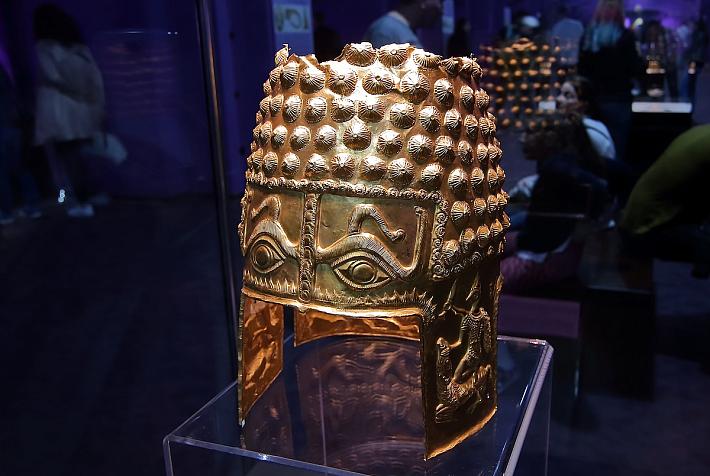Top surprising facts about Romanians

There are some patterns many Romanians tend to follow, and some of them may come as surprising for foreigners. There are exceptions from the examples below, of course, and the generalization is simply to highlight the extremes one may be faced with while dealing with Romanians.
Family is at the core of everything; family needs support, and offers support
Even if many Romanians do not openly admit it, and even if they have borrowed a lot from the Western ways of thinking and acting, most Romanians are very much connected to their families. They will call close family and relatives often, sometimes on a daily basis, and in many cases young Romanians take care of their elderly, supplementing their low income. It runs both ways, with a lot of youngsters getting support from their families until an old age – either by living home with parents, or by receiving packages with food, if parents live in the countryside, and children in the city.
Family time is also very important, and it is often spent watching TV, or visiting relatives, or going on holidays.
Either way, better not to stand in the way of a Romanian and their family! Win their family, or at least ask about their family, their children, and you have won a lot in the relationship with a Romanian, even when dealing with business.
Gifts for family members and showing interest in family members goes a long way with a Romanian. For many Western Europeans, where family relationships are not necessarily that close, this fact comes as a surprise at their first contact with Romania.
Patriotism and hatred for Romania somehow go hand in hand
Romanians don't often share their patriotism with the world, they do so more when Romania achieves some performance on the international scene – either wins a sports or artistic prize. Then much of the country has one heart. For the rest of the time, however, Romanians swing between loving their country for the good and the bad, and hating it. Yes, hating it, to the point where they decide to leave it. And even when the do that – leave the country to search a better life elsewhere, Romanians are almost always drawn back, and not just by the family they left behind.
The more surprising fact here is that, despite criticizing their country a lot – and not doing much about the things they criticize – Romanians can't stand it when foreigners do the criticizing. “I am allowed to criticize it, because it is my own country,” is the thinking pattern many Romanian follow. As a foreigner, if you criticize Romania too much, you will upset Romanians, even if they generally share the same opinion on their country.
A 'love-and-hate' relationship with foreigners
Foreigners are generally warmly welcomed in Romania and pretty much loved all over. A foreigner will understand that from their first encounter with Romania or with Romanians in general. It could be because of how secluded Romanians were for so many years under the Communist regime, where everything foreign was a gold mine.
But irrespective if the reason, being a foreigner will get you far in Romania, much father than it would have in many other countries. Foreigners usually integrate very well in Romania and are accepted by Romanians in their groups of friends. Romanians are proud to have foreign friends, they feel it somehow reflects upon on them the fact that you're a foreigner. The higher your social status, the better.
There will be however people who will not like foreigners as much – the thinking behind it is that they came to 'steal' the poor country, buy the large companies ,buy the lands and the forests, and that in general foreigners came to be our 'bosses' and make large profits on the back of low paid Romanians. Whichever the standing point towards foreigners, you will be able to spot it quite early on.
Spirituality goes deeper than you imagine
A lot of Romanians are religious people; some go to the church often, others keep spirituality at the core without necessarily making a thing out of it. The higher the level of education, the more silent spirituality is – but it definitely is somewhere there, inside. This spirituality also includes believing in signs and omens.
You will meet a lot of Romanians to be superstitious – avoid making payments on a Monday so as not to loose money all week, avoid passing underneath a ladder which brings bad luck, go back a few steps if they see a black cat, bad luck for them during the day if a person carrying an empty bucket comes their way, and good luck if the bucket is full, make the first step outside the house in the morning with their right foot forward so as to have a god day, and many more. There are general superstitions like the ones above, or more personal ones, some of which extremely surprising, and at high level of companies or of the state.
Many Romanians also believe in the 'evil eye' - in Romanian called 'deochi' – which happens when someone is either envious of them, or looks at them too affectionately, both causing them to feel psychically ill. There are traditional spells and blessing to remove the effects of the 'deochi'.
Don't be surprised if a business partner avoids signing a contract on a certain day because of a personal superstition. Try to find out what that is and how you can work around it.
Conflict avoiders, but loving conflict
Road rage can be seen in Romania quite often, and in different forms, from just swearing, to sometimes – albeit more occasionally – even beatings. It's not just the traffic causing it- Romanians love a good argument, even if they know they're not necessarily right. It's in the Latin roots of the people. But at the same time, Romanians tend to be very much conflict avoiders when authority is involved (a 'rule' which they don't comply with all the time when the Police and a traffic rule is involved).
This is most often seen at work, where Romanians tend to keep the bad things to themselves in order to avoid conflict, thinking things will straight themselves out, and in order to protect their position. It is also something to be found often in personal relationships, when things which are considered harmful to the friendship are kept under silence.
This adds up a lot of tension inside, because of all the feedback that has not been given, so things might erupt when one least expect it. Fights with Romanians are often surprising, they will bring up issues from the past which are long forgotten and dealt with for you, but which they never mentioned in due time, and which you might find obsolete already.
A lot of passion, warmth & friendship
Despite seeming to care less about many things (including their own future sometimes), Romanians are capable of great passion, and can pour their soul into what they do. When they are passionate about something, they go the (many) extra miles, they defend friendship and people, come up with amazing solutions.
Try to stir passion in a Romanian you're working with, and you're in for a successful project! Make sure you keep an eye on sticking to deadlines, though.
A bit of victimization and fear of conspiracies
It is not always the case, but there will be Romanians who always find excuses for themselves, and in many cases believe whatever bad thing happened was somebodyelse's fault, while they're the victims. This sometimes goes hand in hand with a belief in and a fear of conspiracies, probably inherited from the Communist past, where conspiracies were indeed all over. In general, the first reaction in case something goes bad is to blame it on someone else, while clearing their name. Eventually, they will admit their part of the blame. Just watch the comments of Romanians fans after their favorite team lost a football match: “the referee was definitely against us! “ will be one of the most frequent excuses.
Romanians will be very suspicious in many cases, and take what you say with a pinch of salt - while also being very gullible in other cases; these extremes... - so sometimes it might be hard to convince a Romanian, especially in case something sounds too good to be true. For example, when they're being complimented, Romanians often think the one paying the compliment has a hidden agenda.
Creativity and outside the box thinking
Romanians are known for the unexpected solutions they find for problems, and this goes for both the good, and the bad. This explains the high number of Romanian Olympiad winners in sciences, for example, the number of Romanians promoted to regional levels in multinational companies, and the Romanians who inspire the world with their music or with any other sort of art.
But it also explains the number of Romanians who commit crimes abroad, like complex fraud schemes, some of which involve lots of creativity. Working with a team of Romanians will almost always mean that a solution will be found – sometimes unexpected, sometimes unorthodox – to any problem that may arise.
Want to add your own surprising fact about Romanians? Add your comment in the box below and we will include it in this article.
editor@romania-insider.com












